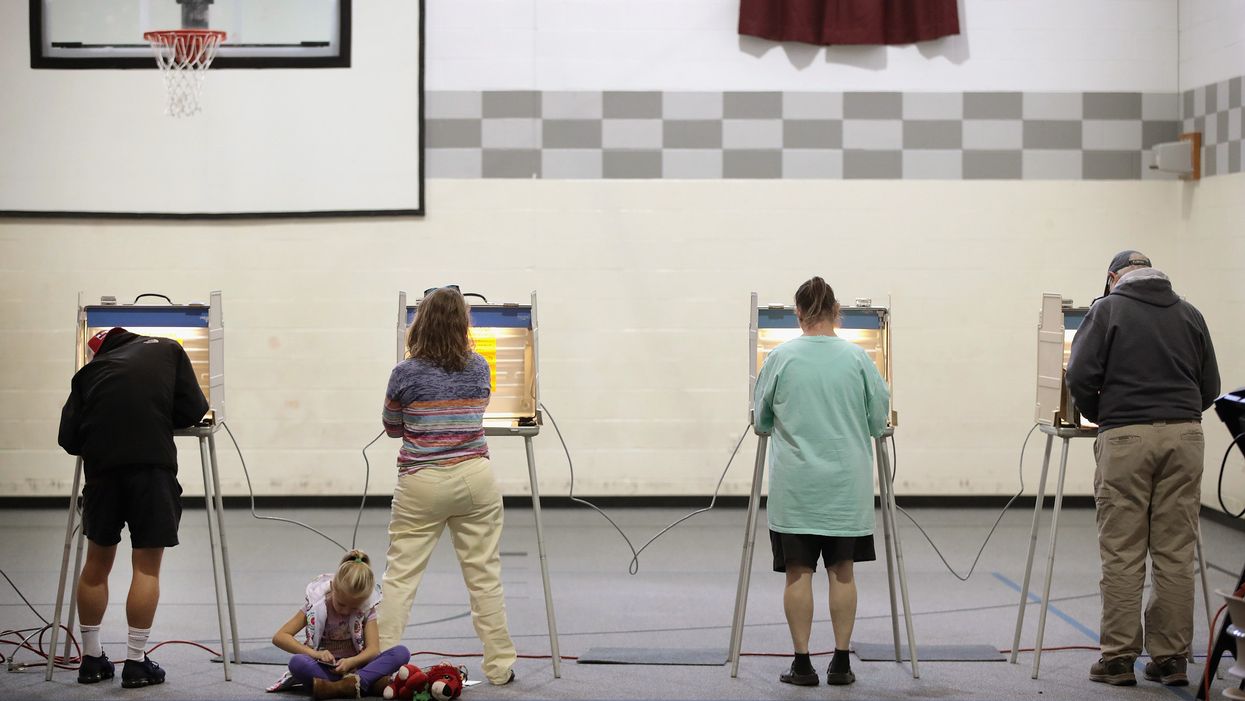Voters in Missouri will decide this fall whether to abandon a decision they made just two years ago, which was to minimize power politics and maximize fairness and competition in the drawing of legislative boundaries.
A measure added to the November ballot on Wednesday by the Republican-majority General Assembly would essentially reverse those priorities, and also do away with plans to put dominant power over redistricting in the hands of a nonpartisan statistician.
The referendum now looms as an ominous, and rare, potential counterweight to a string of good-government reforms adopted across the country by the will of the people in recent years. Its adoption would be the most prominent repudiation in years of a citizen-driven effort to fix democracy's challenges.
Democracy reform groups lambasted the Legislature's move and vowed to mount a campaign to persuade the electorate to reject the measure — which many may not see coming, or be confused by its meaning, while preoccupied with the coronavirus pandemic.
"We need to make sure everyone in America knows that these politicians exploited a national crisis to make a political power grab," said James Jameson, who runs national voter mobilization for RepresentUs.
"In a shameful and undemocratic power-grab, politicians are trying to overturn the will of the voters to serve their own interests," said Chris Melody Fields Figueredo, executive director of the progressive Ballot Initiative Strategy Center.
The outcome of the referendum will set the rules for mapmaking in the state for the coming decade, once the detailed population counts from the ongoing but delayed census are finished next year.
The system now in place, approved with 62 percent support in 2018, created the new and nonpartisan post of state demographer in charge of drawing the 197 state House and Senate districts. It also sets "partisan fairness" and "competitiveness" as the top criteria in the line drawing. The demographer's maps are the final word unless a supermajority of a citizen's commission rejects them.
The referendum would eliminate the demographer's job and instruct equal numbers of Republicans and Democrats on the commission to come up with compromise maps where those characteristics are bumped down to the lowest priority — behind such other characteristics as compactness and the promotion of minority voting rights. If the panel could not reach a deal, the line-drawing would be assigned to a special team of judges.
Under the new proposal, maps could be drawn with such a significant partisan gerrymander that a party winning 50 percent of the vote statewide could nonetheless end up with 65 percent of the seats in Jefferson City, according to the nonpartisan organization of demographers PlanScore.org. They said no state legislative maps anywhere in the country in the last four decades have had a difference of as much as 15 percentage points — what's known in redistricting as an "efficiency gap."
Critics also said the wording of the ballot measure would allow the state to stop accounting for the entire population in the drawing of districts — as required by the "one person, one vote" Supreme Court standard for setting of congressional boundaries — and could instead exclude non-citizens and children in mapmaking, a departure from language in the Missouri Constitution since 1875.
Critics of this switch said it would disproportionately affect the state's big cities, which are dominated by Democrats.
"It would weaken protections for communities of color, undermine independence, deprioritize partisan fairness, and deprive voters of their fair day in court," said Yurij Rudensky, the progressive Brennan Center for Justice's redistricting expert.
A lawsuit to stop the referendum over the "one person, one vote" arguments was vowed by Clean Missouri, which led the successful campaign for the redistricting measure two years ago.
The measure, which the Senate approved in February, was endorsed in the House on a mostly — but not entirely — party-line vote of 98-58. Some Democrats supported the proposal, for two reasons: They expect the altered system would preserve their political futures, and the referendum also proposes such popular-sounding reforms as a ban on lobbyist gifts to lawmakers and a slight reduction in campaign contribution limits.
Even some Republicans in the General Assembly had doubts about the measure before it passed. State Rep. Rocky Miller, who chairs the Legislative Oversight Committee, said during a hearingon Monday that the measure would be another strike against the GOP.
"This is going to go down in flames if it makes it to the ballot. This will not pass at all," he said.




















